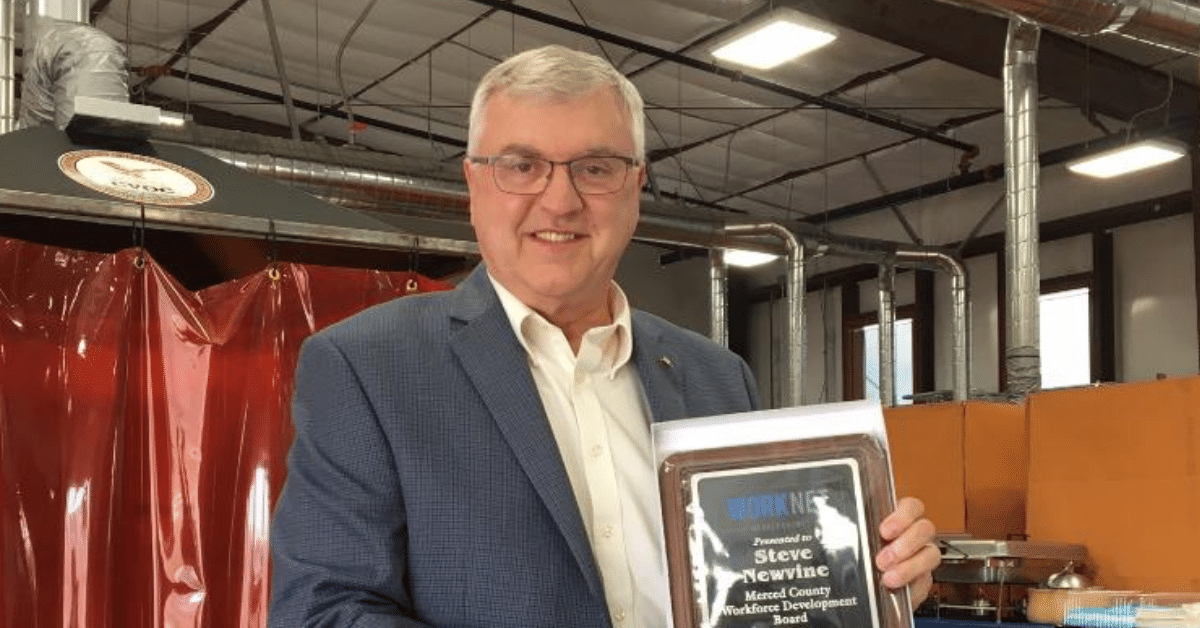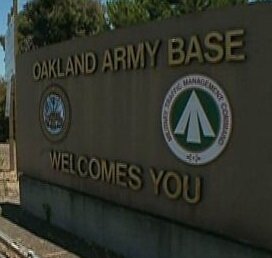
A Brief Visit to California -
What the State May Have Looked Like for a Returning Vietnam Vet
My latest book: Can-Do Californians, will be available at Lulu.com in December
As the end of preparations for my upcoming book Can-Do Californians is now in sight, I’m going through those final steps of reading through the draft, making minor adjustments, and finalizing the project.
It’s also a time of thinking back to a family member who spent a very brief period of time in California as a returning soldier from Vietnam.
That soldier was Army Specialist Four, William Newvine. Billy has been featured in a number of columns here on MercedCountyEvents.com and is the subject of a book I wrote several years ago.
He died six months upon returning home from Vietnam. My book Finding Bill, features interviews with soldiers who knew him.
Bill Newvine spent two or three days in California upon his return from active duty in Vietnam in the fall of 1967, Photo: Newvine Personal Collection
One of those soldiers told me what it was like when Bill and some members of his unit returned stateside.
They returned to the Bay Area of California, where for two to three days, they were mustered out. Mustering out describes the process for a soldier to go through before he or she returned to civilian life.
The returning soldier is subject to medical tests, and counseling as to what to expect in civilian life.
They were being reminded that they had to drop some of their old military habits.
As Bill’s friend Paul Metzler told me about eight years ago, “A lot of us swore like bandits over there. We were in a strange world over there, so the military gave us suggestions on ways to adjust our behavior back home.”
Postcard image of the Oakland Army Base. Photo: OAB Military Museum
Paul remembers the time at the Oakland Army Base almost like it happened much less than the actual time that has passed. The time was October 1967. Vietnam was now a topic dividing the nation. While the men were inside acclimating to the return to civilian life, outside there were demonstrations from anti-war protesters.
“Protesters were there, but there were not too many of them and it really didn’t bother us,” he said. “We were so happy to be back in the states.”
Not everyone who mustered out at the Oakland Army Base was confronted by protesters.
Bud Stevenson who lives in Solano County, wrote an opinion essay published in the Daily Republic newspaper in 2016.
In that essay, Bud tells of his experiences July 20, 1968:
After a trans-Pacific flight aboard a Braniff Airways flight, with one stop in Hawaii, we landed at Travis Air Force Base and were taken by bus to Oakland Army Base, where we received our honorable discharge papers. Next stop was SFO, and then a commercial flight to New York, where my family still lived.
Oakland Army Base, archive photo.
After a day of doctors, counselors, and Army officials pitching for returning soldiers to “re-up” for another tour of duty, Bill Newvine, his friend Paul Metzler, and two others chipped in for a taxi ride from Oakland to the San Francisco Airport.
They likely took in the magnificent view from the Bay Bridge, where they could see the San Francisco waterfront, the Golden Gate Bridge, and Alcatraz off in the distance.
At the Airport, the men boarded a plane bound for Chicago. In Chicago, the four exchanged addresses, promised to reunite in the summer of 1968 in the Adirondack Mountains, and then changed planes to their respective hometowns.
My uncle died in a car accident just six months later. As near as anyone can tell, that planned upstate New York reunion in the Adirondacks never took place.
Bill Newvine was in California for just a couple of days. He took in what sites he could while in the San Francisco Bay Area. By all accounts, he liked what he saw but probably thought he would never return to visit California.
COMING SOON IN DECEMBER 2020
Once he got back to his hometown in upstate New York, he began to return his life to normalcy. He picked up his new automobile, got a job, and reconnected with friends and family. Indeed, he never did return to the Golden State.
Steve Newvine lives in Merced.
His new book Can Do Californians will be available at Lulu.com in December.
Veterans- Now Never Forgotten
How Merced and other Areas are Honoring those who Served
Mark Bolte, the son of Air Force Colonel Wayne Bolte holds the sign that honors his dad along M Street (Veterans Boulevard) in Merced. Photo: City of Merced
All around the nation, and right here in Merced County, the service and sacrifice of our soldiers who served the nation’s military is being recognized at Veterans Day.
In the City of Merced, a sign honoring Air Force Colonel Wayne Bolte was put up by a City work crew back in the spring of 2020. Colonel Bolte’s son Mark read a biography of his dad at a City Council meeting in May.
Wayne Bolte’s plane crashed in Vietnam in 1972. At the time, he was listed as Missing in Action. A search for remains proved unsuccessful.
Wayne was a Major at the time of the mission. He was promoted to Colonel following the incident. He is memorialized on the Courts of the Missing at the National Memorial Cemetery of the Pacific in Hawaii.
For an unknown reason, Colonel Bolte was not included in the original eighty signs that were placed along M Street (also known as Veterans Boulevard) in the City. He lived in Merced and was stationed at Castle Air Force Base.
At the time the original signs were put up in 2018, the City said more names would be added as City staff, working with local veterans groups, verified other Merced residents who were killed in action.
Field of Honor Caption: Merced’s Field of Honor recognizes service men and women. Photo: Newvine Personal Collection
Once again, the community will honor the men and women who served in our military with a special Veterans Day tradition.
In Merced County, Merced College’s Yosemite Avenue frontage will be the sight of the Field of Honor. Hundreds of American Flags honoring area veterans will be set up.
Merced Sunrise Rotary has been organizing the event for the past few years. Some activities associated with the Field of Honor, such as the Race for the Fallen 5 K run at Merced College, have been called off this year due to the concerns raised over COVID-19.
At least one runner from last year plans to do the 5 K anyway in support of veterans.
My hometown newspaper’s story about the veterans banner project
I’m particularly proud of what the people in my hometown of Port Leyden, New York are doing to honor veterans.
Funds are being solicited right now to purchase banners that will hang on utility poles throughout this village of six-hundred residents.
Those banners will honor dozens of veterans whose families and friends are supporting the effort.
There are two soldiers in my immediate family who served in the military. My uncle Bill Newvine served in the Vietnam War. My uncle Jim Newvine served in the Korean War. Photos: Newvine Personal Collection
In the Newvine family, banners will honor Specialist Four William Newvine. Billy served in Vietnam and returned home in 1967. He died tragically in a car accident in May 1968 within months of leaving the Army.
My other uncle, Jim Newvine served in the Korean War. Jim is the oldest son of my grandparents Art and Vera.
Army photographs of my great uncles Chester Dean (left) and Charles Dean. Both served in World War II. Chet was killed in a training accident in Wales one day before D-Day.
One generation beyond, my great uncles Chester and Charles Dean served in World War II. Charlie fought from Italy and returned home to raise a family. Chester died in a training accident, detailed in a column I wrote in May.
It pleases me that each of these four family members will be honored with banners in the project going on in my hometown.
For our veterans, recognition was never sought. But these displays of honor are no doubt appreciated by those still living.
For those who have passed on, banners and flags help keep memories alive among those left behind.
These are ways for communities to show the sacrifices of their soldiers will never be forgotten.
Steve Newvine lives in Merced.
He wrote Course Corrections in 2019. That book is available on Lulu.com. His new book Can Do Californians will be available in December.














To explore Steve Newvine's complete collection of books, simply click on the link below.
CLICK HERE
Steve is also open to delivering speeches for service club programs and other public speaking engagements.
Contact him at: SteveNewvine@sbcglobal.net